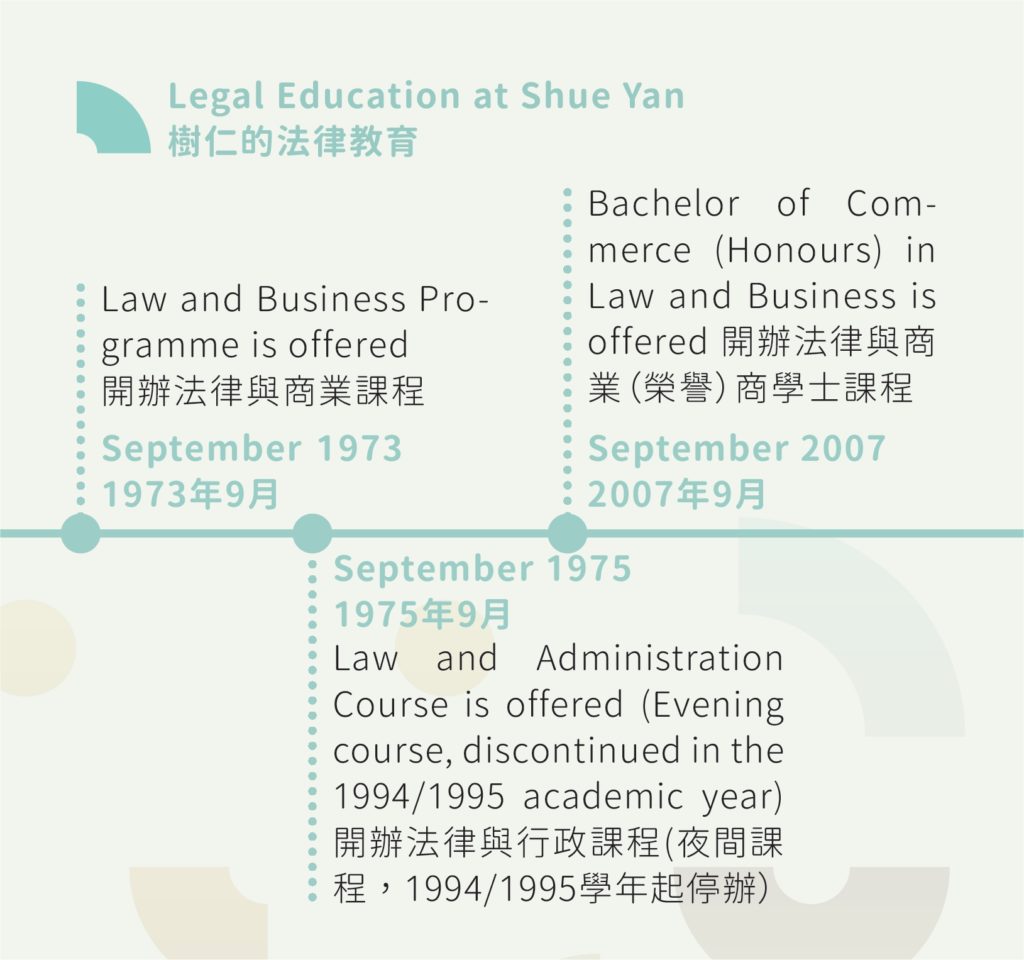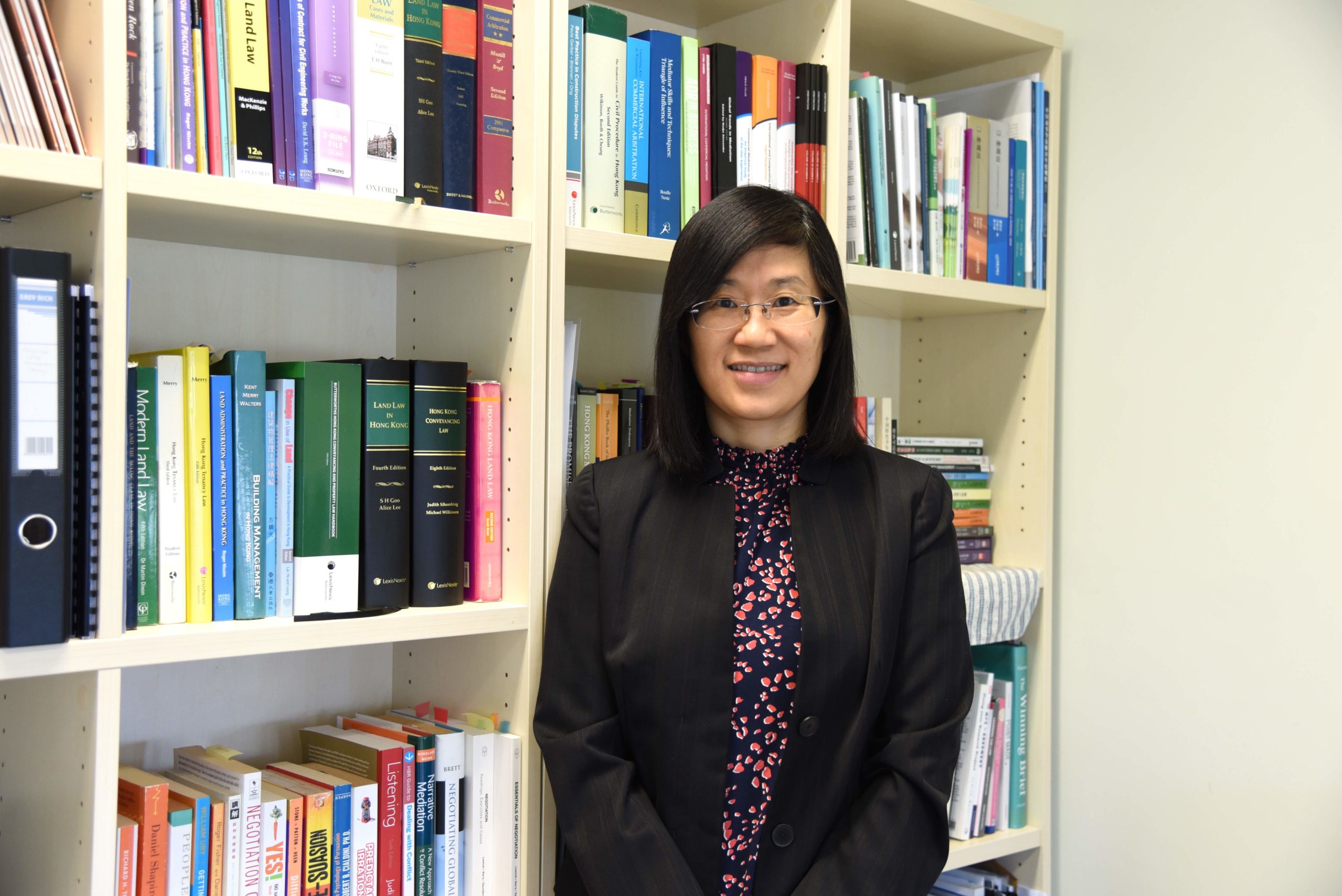The study of law is, to many, for the ultimate purpose of litigating in courts. In the commercial world, however, the knowledge in laws has a much wider application than in courts. Law is applicable in a broad array of commercial transactions and activities, for instance in the formulation of contracts, particularly in international trades, in the formation of legal entities such as partnerships or companies, or in the regulatory regimes in ensuring the financing of commercial activities are in compliance of the rules, nationally and internationally. The Bachelor of Commerce in Law and Business offered by the Department of Law and Business provides courses that cover these areas of legal application in business, aiming to better prepare students in having the knowledge in law that are used in the commercial world.
Dr. LUI Chit Ying Wendy, the Head of Department of Law and Business, said during an interview with Shue Yan Newsletter that in designing the curriculum, much thoughts were put on integrating legal knowledge with commercial use. The aim is to foster graduates’ attributes in the knowledge and skills that are practically applicable in business operation. This attribute is becoming exceptionally crucial in the banking and finance industry where there is an emerging manpower need in due diligence work to be handled by those who are conscientious in scrutinizing transactions that are in compliance with all relevant regulatory provisions. With the tightening of laws in anti-money laundering and counter-financing of terrorism, higher professional requirements for company secretaries and related professionals in governance are seen. Seeing these changes in commercial practices, the Department has correspondingly developed new courses since 2016/2017, including company secretaryship, risk and compliance, law of commercial crime, and internships to give students opportunities to be better equipped both in knowledge and in practice.
Dr. LUI also recognize the need for students to assimilate the concept of commercial dispute resolution on top of the knowledge in litigation, particularly after the implementation of the Civil Justice Reform in Hong Kong since 2009. Students will learn court practice skills through mooting and advocacy exercises while at the same time knowing the sophistication of business operation in which disputes are mostly settled through alternative means of resolution, such as mediation and arbitration.
Law students are normally equipped with good advocacy and legal drafting skills. To enrich these skills, nothing is better than practicing them, not only through course of studies but also through participation in international competitions. It is always encouraging to see how students had excelled themselves, and sometimes out-performed others, in these competitions. In the 15th LAWASIA International Moot Competition (2020), the team from the Department was advanced to the semi-finals, and one Year 4 student Ms. ANEEZIA was awarded the third best mooter award. In the sixth International ADR Mooting Competition (2016), the team performed well and was advanced to the quarter-finals. Ms. LAU Wai Kei Vicky had won the Best Mooter prize – the only student from Hong Kong winning an award.
The Department is also mindful that students should have a better exposure outside Hong Kong. In 2018 and 2019, study tours to Beijing were organized. Students had chances to attend lectures by professors from the Faculty of Law of the Beijing University, and to participate in seminars given by local judges. Dr. LUI expressed that there are plans to explore on the opportunities in having study tours and internship arrangement in the Greater Bay Area to enhance students’ awareness of the development in the region. This is becoming indispensable for students who want to remain competitive.
In the coming years, the Department will further develop new courses that meet the challenges faced in the use of big data in a digitalized era. Interdisciplinary teaching and learning become imperative to keep up with these rapid changes. Of equal importance is the adherence to professional ethics and attitude, something that cannot simply be taught. Dr. LUI hopes that teaching staff of the Department will continue to dedicate in academic research, as a result of which content of teaching will be augmented. This is a humbling process that will hopefully instill into students a sense of humility driven by an abiding efforts in the yearn for knowledge, and not to exalt oneself after completion of a degree. Afterall, university study is a small step in life.

Source:50th Anniversary Special Issue
